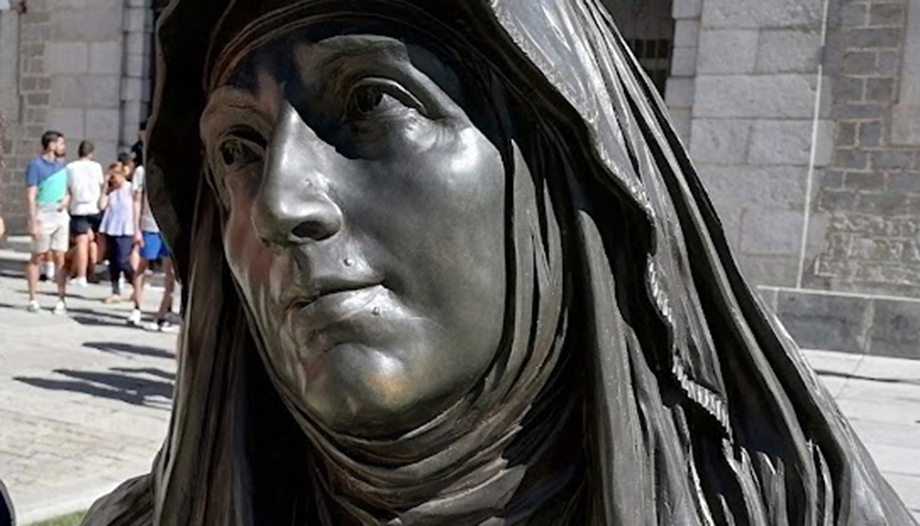"Sadness and melancholy I do not want them in my house," St. Teresa of Jesus repeated to her nuns. On this eve of her feast day, I wonder if there are really reasons to be joyful in a world that seems to be sinking beneath our feet.
When the biggest global pandemic in decades seemed to be receding in the rearview mirror, leaving us with the feeling that it was just a bad dream, the "third world war", as Pope Francis himself has already called the conflict that the whole of humanity is fighting, for now, on the chessboard of Ukraine, covers the future of Europe and the world with dark clouds.
Add to that the consequences of climate change, with record drought and the threat of extreme weather events, and what can we expect in the years ahead but suffering of all kinds? Moreover, with the possibility of nuclear armageddon on the table, will the years ahead even exist, or will humanity have been just an insignificant breath amidst the eons of life on planet earth?
I am sure that the Christian faith can help us to regain hope by doing more than praying for the end of hostilities and for the improvement of the climate - this being very necessary - and the solution lies in the Apocalypse, a book as named as it is unknown by believers themselves.
The last book of the Bible, far from serving to instill fear and terror, as it would seem to an untrained reader confronted with the visions it describes, seeks to encourage, console and promote hope in the Christian community to which it is addressed. The terrible visions he describes are not future predictions to be feared, but metaphorical ways of alluding to evils already present, such as the monstrous persecution of the Roman Empire at that time, encouraging the faithful to resist by trusting in divine assistance. It is, in short, not a catastrophist text, but has a positive and joyful character.
Rereading the Apocalypse in today's key, we can find today the new beasts and dragons that frighten us, but that will not achieve the final victory, because the woman clothed with the sun (image of Mary or of the Church) and the slain lamb (image of Christ) will prevail at the end of history. It is a call, in short, not to be afraid in spite of the sorrows, because the key to events is in God's hands, and only He knows the day and the hour of each one.
There are hard times, as there have always been in the history of humanity, but the Christian relies on the spirit of the beatitudes, the pillar of the Gospel: blessed are the poor, those who mourn, the persecuted... In spite of the trials of this world, we can experience, already here in the first fruits, the fruits of the Kingdom of Heaven: joy, consolation, the hope of justice at the end of time. To know that we are loved and to recognize God in the folds of history is a reason for hope and a repellent to the demons of sadness and melancholy that lie in wait for us.
In the face of fear and uncertainty, it is good to invoke hope by singing, with the psalmist: "The Lord is with me: I fear not. What can man do to me?" and to turn once more to the saint of Avila who reminds us: "Wait, wait, for you do not know when the day or the hour will come. Watch carefully, for everything passes with brevity, although your desire makes the certain doubtful, and the short time long. See that the more you fight, the more you will show the love you have for your God and the more you will rejoice with your Beloved with joy and delight that can have no end".
Hope, that is an invincible weapon. Literally, the weapon of the Apocalypse.
Journalist. Graduate in Communication Sciences and Bachelor in Religious Sciences. He works in the Diocesan Delegation of Media in Malaga. His numerous "threads" on Twitter about faith and daily life have a great popularity.







